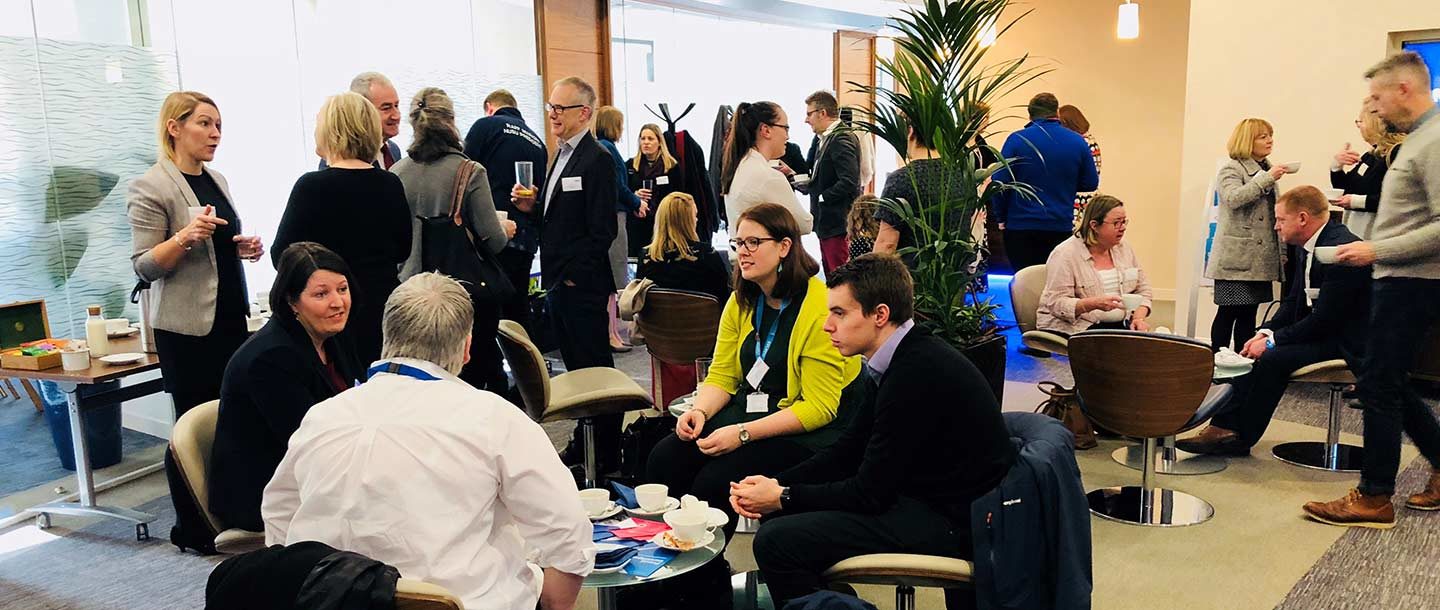Charities and other not-for-profit organisations are under more pressure than ever before to show that they are trustworthy, accountable and contribute to society with effective impact reporting.
On 13 March 2019, UNW and Northstar Ventures held an interactive morning session aimed at charities and not-for-profit organisations that were keen to develop their understanding and use of impact reporting and measurement.
Representatives from over 40 charities, not-for-profit organisations, and social enterprises attended the event at UNW’s offices in Citygate. The morning began with a networking session before the presentations, and concluded with a Q&A panel session, where attendees were offered the chance to have one-to-one meetings with the speakers.
Peter Deans, an independent consultant working with charities and social enterprises, spoke about his expertise on social impact reporting. Following the event, we sat down with Peter to discuss the main themes that were covered, and to get further information about best practice approaches. He detailed that a lot of organisations tend to get overwhelmed when it comes to reporting impact, due to the various different audiences they have to communicate to.
Peter commented: “This creates a temptation for some organisations to report their social impact without doing anything meaningful, and I try to encourage people against that for three reasons:
- Organisations are getting better at impact reporting, and if you don’t, you’re going to get left behind.
- Grant-makers are more willing to offer funds to organisations that communicate their impact effectively.
- It’s the right thing to do. People want credibility and authenticity, and impact reporting at its’ best showcases that you’re trying to improve things, trying to learn, and trying to get things right.”
As the presentation continued, Peter started to demonstrate the pitfalls that organisations can fall into when trying to communicate their impact. He stated: “What a lot of not-for-profits do is lose sight of their mission and end up describing what they do in really jargonistic ways without emotional appeal. When communicating impact, you have to go back to the absolute core. You need to consider:
- What do you believe you’re doing?
- What do you think the benefit of your business is?
When you provide that information, instead of solely a scientific figure used to measure impact, you’re appealing to an emotional and rational sense. You blend these factors together into something that says, ‘These are the reasons we exist, this is our impact statement, this is what we’re trying to do.’ It makes what you’re saying all the more credible.”
He added: “You need to reflect – are you doing this to sell, or are you doing this to learn? It is much more authentic to report and learn from what you’re communicating, and then to think about how you can sell that information. Consider what you know is working, why people use your service, and what could be developed. Then you can put forward a well-reasoned case with a transparent analysis of the evidence available, which is what everyone should be aiming at.”
Peter then went on to provide an example of an organisation that communicates impact well: “Street League are an organisation that do impact reporting well. They pledge to never over claim what they do, include sample sizes in all percentages listed, and have evidence to prove what it is that they’re communicating. They even report on the disengagement rate from their service, which is transparent and indicates that they take measuring seriously. A model like this is something to strive to.”
In conclusion, Peter suggested that a straightforward model which offers a simple snapshot of organisations and their impact is an effective way to approach impact reporting. The model he suggested is known as the ‘Golden Triangle’ and was developed by Martin Brookes.
The morning session also included presentations from several other people involved with social impact reporting. This includes Simon Gerry, Chief Executive and Raff Marioni, President of Newcastle University Students’ Union, who spoke about their organisation’s approach to reporting; Dan Ellis, Founder and Managing Director of Jam Jar Cinema CIC, who provided insight into how social impact measurement underpins the ambition of the venue; and Alison Collins of Northstar Ventures who discussed the importance of impact reporting from the point of view of a social impact investor.
Maxine Fox, Events and Partnerships Manager at UNW, said: “The UNW Events Programme is about us organising seminars and workshops for our clients based on topics they want to know more about. This could be learning more about professional networking, communication and building relationships, or raising finance.”
If you would like to share your ideas for future workshops and seminars, please email Maxine Fox at events@unw.co.uk.

